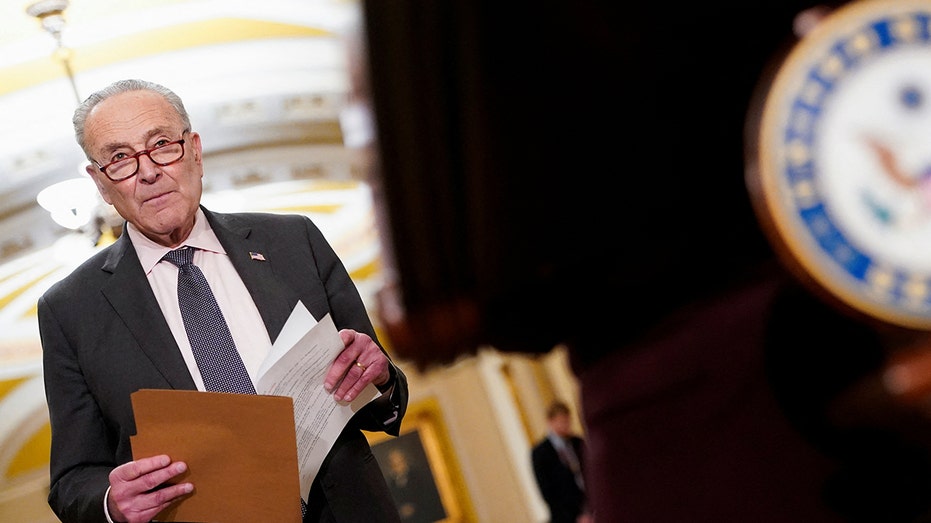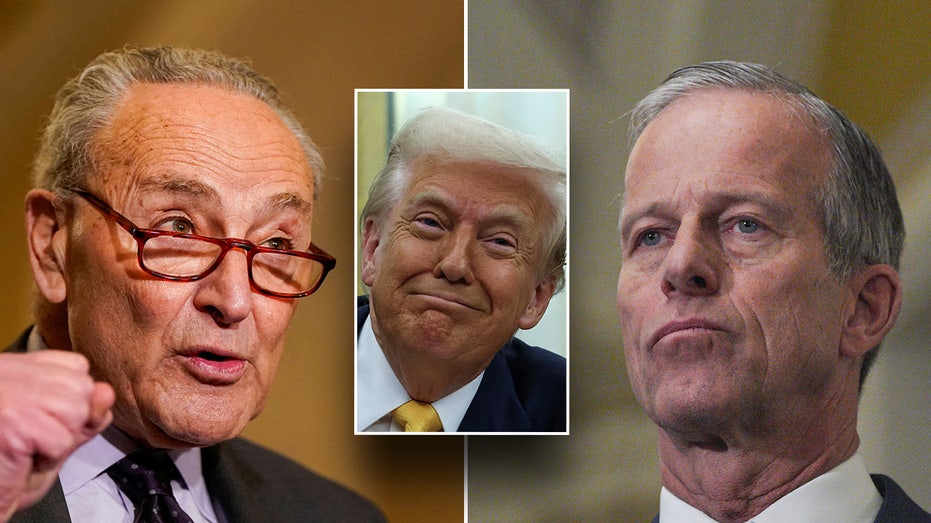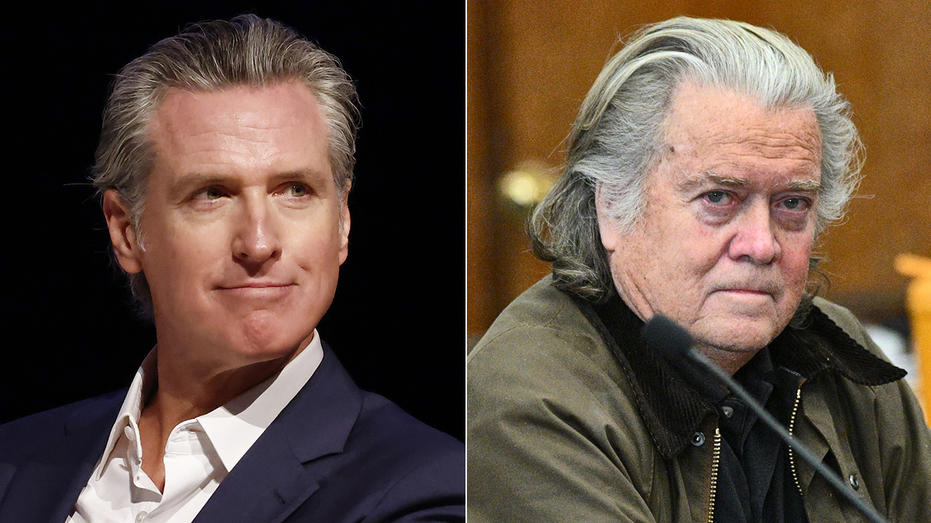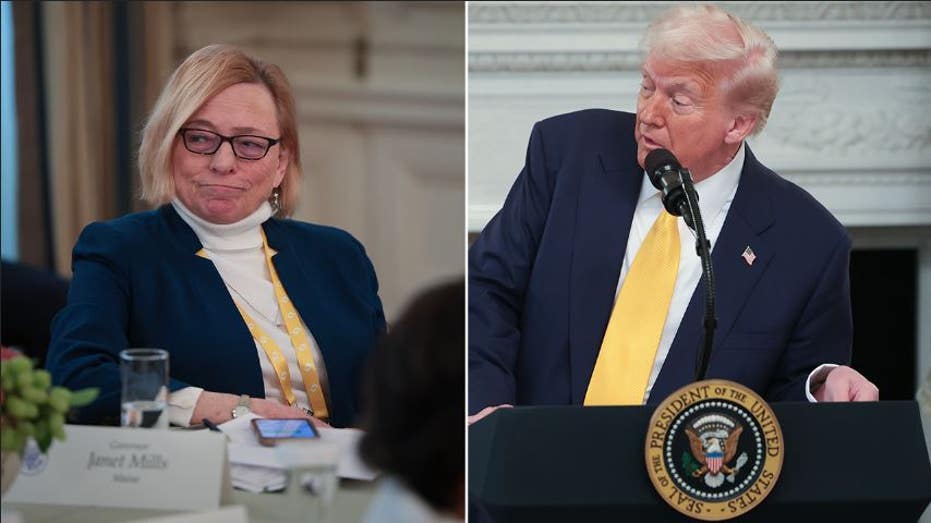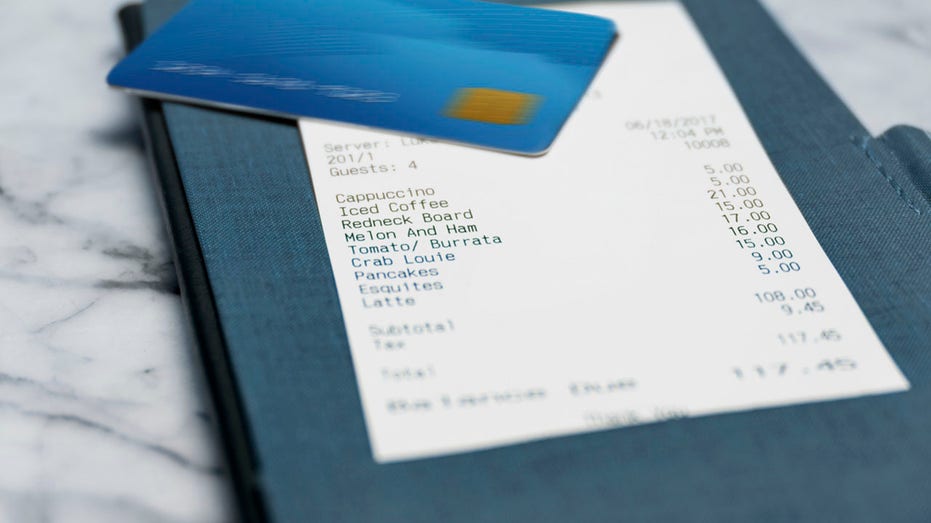- by foxnews
- 15 Mar 2025
‘Show me the money’: how Eric Adams made it to the top - and fell back down
‘Show me the money’: how Eric Adams made it to the top - and fell back down
- by theguardian
- 04 Oct 2024
- in politics
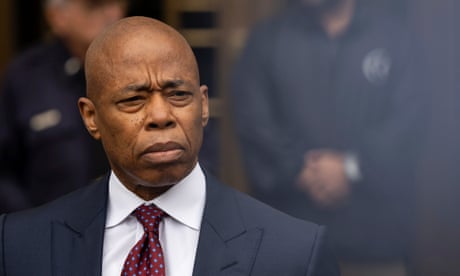
Last week, on a grey September morning, the New York City mayor, Eric Adams, was struggling to get ahead of federal prosecutors.
News had already leaked that Adams, a former police officer who won in 2021 with a law-and-order message, was about to become the first mayor in city history to be indicted on federal corruption charges.
Just minutes before the US attorney for the southern district of New York - an office known for taking on white collar criminals and the mafia - formally announced charges of bribery, wire fraud and the solicitation of campaign contributions from foreign nationals, Adams held his own press conference, in which he painted himself as the victim of a 10-month-long campaign of "leaks", "commentary" and "demonising".
"We are not surprised," Adams said solemnly, standing at a small wooden podium. "We expected this." Behind the mayor stood a line of Black clergy members, an obvious gesture suggesting Adams was part of the long lineage of courageous Black leaders targeted by the white power structure.
But as one heckler in the audience that morning made clear, Adams - who had attempted to cut school budgets, raised rents for rent-stabilised tenants and cozied up to the city's largely white corps of business leaders - might have a harder time projecting himself as a victim of the deep state.
"This is not a Black thing. This is a you thing," the protester shouted, as Adams grinned awkwardly.
"You are a disgrace to all Black people in this city," the heckler continued. "The things that you have done are unconscionable. You hurt our schools. Our streets are dirty. Our children are harassed by the police."
After a few minutes, Adams was able to speak and took questions from reporters, who had just got their hands on the freshly unsealed indictment against the mayor.
The sprawling, 57-page filing alleged that for years in the run-up to his mayoral election Adams knowingly sought out and accepted illegal campaign contributions funneled to him by people part of or close to the Turkish government - not to mention luxury hotel stays and more than $100,000 worth of free or discounted flights going everywhere from France to Sri Lanka to China. The day after the indictment's release, Adams had to go to court. He pleaded not guilty to all charges. This was not the future Adams had imagined for himself three years before when it became clear he was going to become the mayor of the US's largest city by population.
Back then, the candidate's greatest support seemed to come from beyond.
God had previously told Adams, he recalled, that he was "going to be the mayor", and, indeed, in 2021, right before the pivotal Democratic primary, everything seemed to fall into place for the once obscure Brooklyn politico. New York City's progressive camp cannibalised itself. One of Adams's top centrist rivals collapsed in the polls due to decades-old harassment allegations. And after months of protests over the police killing of George Floyd and a temporary rise in shootings, Adams rode a tough-on-crime backlash into office, eking out a victory over a former garbage commissioner with less campaign cash and little name recognition. "Look at me and you're seeing the future of the Democratic party," Adams told supporters at the time. "If the Democratic party fails to recognise what we did here in New York, they're going to have a problem in the midterm elections and they're going to have a problem in the presidential election."
And it wasn't just Adams who was predicting big things.
A chorus of national political columnists, consultants and analysts heralded his coming reign. Even the political forecaster Nate Silver had high hopes for the former Republican cop turned mayor.
"It's probably foolish to think a NYC mayor will successfully translate into being a national political figure, but I still think Eric Adams would be in my top 5 for 'who will be the next Democratic presidential nominee after Joe Biden'," Silver tweeted a few days after Adams took office. Today, as he faces federal charges, historically bad polls and a growing pool of mayoral challengers smelling blood, Adams looks more like a future one-term mayor than the future of the Democratic party.
This was not an outcome that national commentators predicted. But former Adams staffers, aides, local lobbyists and elected officials - the kind of people who know how the Empire state runs - say they're not surprised. Adams came to power through the backrooms of New York machine politics, a seedy but powerful subculture built more on favour-trading and loyalty than any strong ideological convictions. Over two decades, Adams attached himself to influential state lawmakers and party bosses from Brooklyn, cultivated some of the borough's top real estate and legal titans, and developed a close-knit coterie of advisers and staffers who rose with him for years from the fringes of Brooklyn politics.
This political network and Adams's own unceasing work ethic helped the candidate build a campaign war chest that proved large enough to get him past the finish line in 2021 - a fact he well understood.
"You win the race by raising money. Have to raise money. Everything else is fluff," Adams texted a close supporter ahead of the election, according to messages cited in the indictment. "I have a 7 million dollar race. I have a clear plan to raise it and each night we are out executing the plan."
But it was this exacting drive, prosecutors allege, that caused him to cross ethical and legal lines in the pursuit of campaign cash and the power that comes with it.
In the indictment, former Adams staffers, who appear to have cut deals with prosecutors as they built their case, claimed that their boss personally solicited illegal donations from foreign businessmen and approved of "straw donor" schemes, which used American residents as pass-throughs to mask the money's true origin. One text message exchange cited in the indictment shows Adams personally pushing a staffer to seek "help" from a Turkish businessman, now accused of funneling him straw donations. Fabien Levy, a spokesperson for Adams, did not provide the Guardian with a comment for this story. Vito Pitta, Adams's campaign counsel, and Alex Spiro, Adams's criminal defence attorney, did not respond to requests for comment.
Last Friday, after Adams formally pleaded not guilty, he stood outside federal court with Spiro, his attorney, who predicted the charges would be dismissed and accused prosecutors of bringing the case because they were excited by the "spectacle". How aware, how involved the mayor was in these alleged schemes, may soon be left up to a jury to decide. But for years before the mayor was summoned to stand before a federal judge in lower Manhattan, political insiders say, there were signs that Adams was unafraid to skirt up to the edge of the law on his way to the top.
When Adams first became a state senator from a working-class part of Brooklyn in the mid-2000s, he had a reputation as a reformer.
During his early days as a cop, the Queens native publicly clashed with the department's white ethnic brass. As a young lawmaker, Adams marched with Occupy Wall Street demonstrators and spoke out against the NYPD's notorious "stop-and-frisk" program, an initiative that pushed cops to search young Black and Latino men en masse in the off-chance that they had a knife or a gun.
But while his rhetoric as a press-hungry lawmaker could at times be progressive, Adams - whose long-term ambition was always to become mayor - showed more interest in cultivating alliances than passing landmark pieces of legislation.
And some of the causes he did champion were obviously in his self-interest. In 2007, Adams, then a moustachioed freshman lawmaker, stood on the Senate floor and shouted about the need for lawmaker raises. "Show me the money," declared Adams, wagging his finger to the chamber. "Show me the money. That's what it's all about." Two years later, Adams found a way to raise more in campaign funds, if not personal ones. In 2008, Adams helped broker a deal that made his good friend, the state senator John Sampson, chair of the chamber's Democratic majority - one of three positions at the time that in effect dominated the New York legislature, which was then considered by some to be a finishing school for political corruption. The following year, as chair of the senate racing and wagering committee, Adams got to work with Sampson to decide which company they would recommend for a multibillion-dollar video slot machine contract at a state-owned thoroughbred racetrack in Queens. New York's inspector general later concluded that the selection process was tainted by favouritism.
Investigators found that Sampson, for example, leaked "one or more confidential internal senate analyses of the competing bids" to a lobbyist working for AEG, the company that eventually landed the contract.
And Adams and Sampson both met New York's then governor David Paterson over dinner and pushed him to approve the contract for a company called AEG, Patterson later told investigators.
The same month, Adams received more than $6,000 from AEG-linked contributors.
Adams would later insist to investigators that he did not meet for dinner, contrary to the claims of the governor and his good friend Sampson. Adams said he just so happened to momentarily bump into the governor, Sampson and an AEG representative at the restaurant.
"I just said hello to them and I moved on," he told investigators, a claim that they said strained "credulity". Four days after the contract was awarded to AEG, Adams and Sampson decided to attend a $1.5m "victory celebration" at the home of the company's lobbyist.
After the scandal came to light, the contract was rescinded. But federal prosecutors never brought any charges against Adams, who insisted long after that he upheld the "highest" of ethical standards throughout the episode. Sampson, who was also not charged for the AEG scandal, was subsequently indicted on embezzlement charges stemming from a separate incident a few years later. In the years after he was released from prison, the former lawmaker benefited from his association with Adams, as the Guardian previously reported.
Since he was an NYPD officer in the mid-nineties, Adams had quietly harboured ambitions to become mayor, and, in 2013, he took the next step towards his goal, becoming borough president of Brooklyn. The position had few major responsibilities, but it served as an excellent launching pad for his long-planned mayoral bid.
Two months later, Adams won New York City's Democratic primary, in effect making him the mayor-in-waiting. That September, the Turkish official, having cultivated Adams for almost six years, asked his friend for help, prosecutors allege.
So the Turkish government official began reaching out to Adams's eastern Europe Muslim countries liaison, the federal indictment alleges, telling her that Turkey had supported Adams and now it was "his turn" to support Turkey.
"You are Great Eric, we are so happy to hear that
- by foxnews
- descember 09, 2016
Neighbors react as viral 'Tunnel Girl' granted permit to continue digging massive bunker under home
"Tunnel Girl" in Herndon, Virginia, "finally" got her tunnel project approved after pausing the project due to a potential violation. Locals and social media users react.
read more